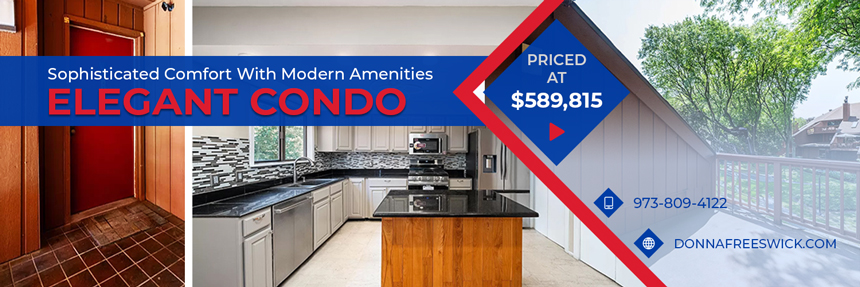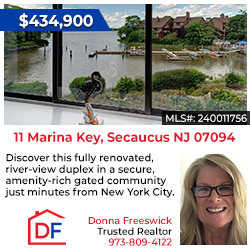To master pricing your home, focus on seven key factors that shape its value: location near amenities, schools, and transportation; market conditions; the impact of size and space utilization; upgrades like timeless designs and energy efficiency and curb appeal enhancements such as landscaping and fresh paint; comparable sales data and pricing strategy; neighborhood trends like community development and safety; and economic factors like inflation and job growth. Understanding these influences will empower you to make informed decisions about the worth of your home.
Key Takeaways
- Location near amenities, schools, and transportation impacts value.
- Upgrades like timeless designs and energy efficiency increase the property's worth.
- Property size, room layout, and space utilization affect perceived value.
- Analyze comparable sales for pricing insights and competitive strategy.
- Economic factors, market conditions, and job markets influence home values.
Location
The location of your home greatly influences its market value, with proximity to neighborhood amenities, schools, and public transportation playing important roles in determining its worth. Neighborhood amenities, such as parks, shopping centers, and recreational facilities, enhance the appeal of your home to potential buyers, thereby increasing its market value.
A highly-rated school district adds a notable premium to your property, as families are often willing to pay more for homes located within the boundaries of reputable schools. Furthermore, easy access to public transportation, like bus stops or train stations, can also positively impact your home's value, especially in urban areas where convenience and connectivity are highly valued.
Homes located near transportation hubs tend to attract buyers who prioritize accessibility and commuting ease, leading to higher demand and potentially higher selling prices. Therefore, when considering the value of your home, it's essential to take into account these location-based factors that can significantly influence its market worth.
Market Conditions
When assessing your home's worth, it's important to take into account the current housing supply, buyer demand trends, and economic indicators that impact market conditions.
Understanding these factors will give you insight into the dynamics affecting the value of your property.
Current Housing Supply
In the current real estate market, the availability of housing inventory significantly influences the value of your home. Understanding the dynamics of housing inventory is essential when devising effective pricing strategies.
Housing inventory refers to the number of homes available for sale in a particular market. When there's low housing inventory, demand typically exceeds supply, leading to market saturation and potentially higher prices. Conversely, high housing inventory levels can result in decreased demand, leading to pricing adjustments to attract buyers.
Market saturation occurs when there's an excess of homes for sale relative to the number of buyers, potentially causing prices to stabilize or decrease. In such situations, sellers may need to reevaluate their pricing strategies to align with the current market conditions.
Pricing adjustments, such as lowering the listing price or offering incentives, may be necessary to attract buyers and remain competitive in a saturated market. By closely monitoring housing inventory levels and understanding market saturation, you can make informed decisions when pricing your home to maximize its value.
Buyer Demand Trends
Understanding buyer demand trends is crucial to evaluating current market conditions and determining the best pricing strategy for your home.
When analyzing buyer demand trends, consider the following key aspects:
Pricing Strategies: Stay informed about the current pricing trends in your local market to guarantee that your home is competitively priced.
Marketing Tactics: Implement effective marketing strategies to attract potential buyers and stand out in a crowded market.
Buyer Preferences: Keep abreast of what features and amenities buyers are looking for in a home to tailor your property to meet their needs.
Seller Strategies: Develop a solid plan for negotiation and closing the deal to maximize the value of your home sale.
Market Conditions: Evaluate the overall market conditions, such as interest rates and competition, to adapt your pricing and marketing strategies accordingly.
Economic Indicators' Impact
To gauge the impact of economic indicators on your home's worth, evaluate factors like interest rates and market competition. Economic indicators such as inflation rates directly influence housing costs. When inflation rises, the purchasing power of potential buyers decreases, leading to a possible decrease in demand and consequently affecting your home's value.
Similarly, unemployment rates play a significant role in the housing market. High unemployment rates can indicate economic instability, lowering the number of qualified buyers and potentially decreasing your home's market value.
Understanding these economic indicators can help you make informed pricing decisions. Monitoring inflation and unemployment rates in relation to the housing market conditions allows you to anticipate potential fluctuations in your home's worth.

Property Size
When evaluating your home's worth, property size plays an essential role in determining its value. The impact of size on the overall value of your property can't be overstated, as larger properties often command higher prices.
Additionally, how effectively the space is utilized within the property can also greatly influence its perceived worth.
Size Impact On Value
The size of your property directly influences its market value, making it an important factor to keep in mind when evaluating the worth of your home.
When considering the impact of size on the value of your property, several key aspects come into play:
Room Sizes: Larger rooms often increase the perceived value of a property, as they provide more functional space for inhabitants.
Lot Size: A larger lot size can add value by offering more outdoor space for recreational activities or future expansions.
Living Area: The total living area of your property, including the number of bedrooms and bathrooms, greatly affects its value.
Space Layout: The layout of the space can impact the flow and functionality of the property, influencing its overall value.
Adequate Storage: Sufficient storage space, such as closets and cabinets, can enhance the perceived value of your home by providing organizational opportunities.
Understanding how these factors interplay can help you make informed decisions when evaluating your property's value.
Space Utilization Importance
Effective space utilization within your property plays an important role in determining its overall worth in the real estate market. The room layout and functional design greatly impact how potential buyers perceive the property's value. A well-thought-out room layout that maximizes space and flow can increase the property's desirability and, ultimately, its market price.
Consider the functionality of each room and how it contributes to the overall living experience.
When evaluating your property's space utilization, pay attention to how each room is arranged and utilized. Ideal space utilization involves creating a balance between open areas and private spaces, ensuring that each room serves a distinct purpose. Functional design goes beyond aesthetics; it focuses on how efficiently the space meets the occupants' needs.
To enhance your property's value, prioritize practicality and functionality in the room layout. Make sure that each room serves a specific function and that the overall design enhances the property's usability.
Upgrades And Renovations
Enhancing the features of your home through upgrades and renovations can greatly impact its overall value. When considering upgrades and renovations, there are several key factors to keep in mind:
Design Choices: Opting for timeless and high-quality design elements can increase your home's appeal and value in the long run.
Maintenance History: Regular maintenance and upkeep of your home, including upgrades like a new roof or HVAC system, can signal to potential buyers that the property has been well cared for.
Energy-Efficient Upgrades: Installing energy-efficient appliances, windows, and insulation not only reduces utility costs but also adds value to your home.
Kitchen And Bathroom Remodels: These areas are known to have a significant impact on a home's value, so investing in updated kitchens and bathrooms can yield a high return on investment.
Curb Appeal Enhancements: Improving your home's exterior with landscaping, fresh paint, or a new front door can make a strong first impression, increasing its perceived value.
Comparable Sales
Consider analyzing recent comparable sales in your neighborhood to gain insights into the current market value of your home. Comparable sales, also known as "comps," play an important role in determining the pricing strategy for your property. By examining the selling prices of similar homes that have recently sold in your area, you can assess the property value of your own home more accurately.
During the appraisal process, appraisers often rely on comparable sales to conduct a thorough market analysis. These sales provide valuable data on what buyers have been willing to pay for similar properties, helping appraisers determine a fair and competitive price for your home.
By understanding the trends in comparable sales, you can make informed decisions about listing your home at a price that aligns with the current market conditions. Incorporating insights from comparable sales into your pricing strategy can enhance your chances of attracting potential buyers and securing a favorable sale price.
It's important to stay up to date with the latest comparable sales data to make sure that your home is competitively priced in the market.
Neighborhood Trends
Analyzing neighborhood trends can provide valuable insights into the overall market dynamics impacting your home's value. To master the art of pricing, consider the following key factors influencing your neighborhood:
Community Development: The growth and improvement of community amenities like parks, shopping centers, and recreational facilities can positively impact property values.
School Quality: Proximity to high-performing schools often correlates with higher home values due to increased demand from families seeking quality education for their children.
Crime Rates: Lower crime rates create a safer environment, boosting desirability and property values in the neighborhood.
Transportation Access: Easy access to public transportation, major highways, or proximity to urban centers can increase property values by enhancing convenience for residents.
Economic Factors
To further understand the factors shaping your home's worth, examine the economic influences that play an essential role in determining property values. Economic factors such as inflation rates and interest rates have a substantial impact on the real estate market. When inflation rates rise, the cost of goods and services increases, leading to a decrease in the purchasing power of consumers.
This can result in higher mortgage rates, making it more expensive for potential buyers to finance a home purchase. Interest rates also play a critical role in determining the affordability of homes. Lower interest rates generally stimulate demand, as borrowing costs decrease, while higher interest rates can deter buyers due to increased mortgage payments.
Additionally, job growth is a key economic indicator that influences housing demand. Areas with strong job markets tend to attract more homebuyers, leading to increased competition and higher property values. Consumer confidence is another important economic factor that affects the real estate market.
When consumers feel optimistic about the economy, they're more likely to make significant purchases, like buying a home. Understanding these economic factors can help you make informed decisions when pricing your home.
Frequently Asked Questions
How Do Nearby Schools Impact My Home's Value?
Nearby schools have a notable impact on your home's value through school ratings and academic performance. Positive ratings and high academic achievement often translate to increased property value, making proximity to reputable schools a crucial factor to take into account.
Does The Age Of My Appliances Affect Pricing?
When evaluating your home's value, remember that the age of your appliances plays a significant role. Upgraded, modern appliances can increase your home's worth, while outdated ones may lower it. Consider the appliance's condition and potential upgrades.
Are HOA Fees Considered In Determining Value?
When determining your property value, HOA fees play a significant role. They reflect the amenities offered by your neighborhood, influencing your home's worth. Analyze HOA fees alongside other factors to master the art of pricing.
Can A Unique Layout Influence The Selling Price?
A unique layout can greatly impact the selling price of a home. Custom features like a gourmet kitchen or a stunning architectural design can increase value by up to 20%. Make these standout elements a focal point in your pricing strategy.
Does Curb Appeal Really Make A Difference In Pricing?
Yes, curb appeal greatly influences pricing. Landscaping impact and exterior upgrades enhance first impression. A well-maintained exterior signals care and attention to detail, often leading to higher offers and quicker sales.
Conclusion
To sum up, mastering the art of pricing your home requires careful consideration of various factors. Just as a skilled artist blends colors on a canvas to create a masterpiece, you must carefully balance location, market conditions, property size, upgrades, comparable sales, neighborhood trends, and economic factors to determine your home's worth.
By understanding and leveraging these elements, you can confidently set a price that accurately reflects the value of your property in the ever-changing real estate market.












